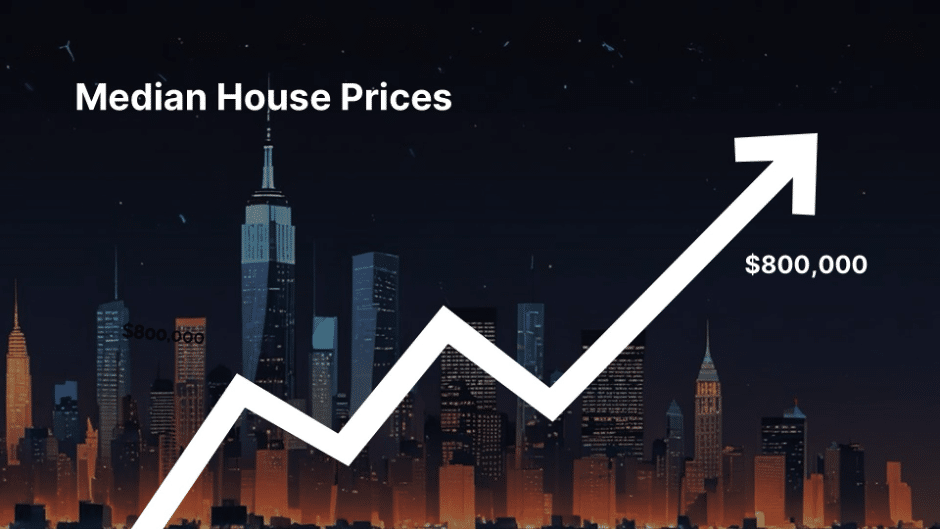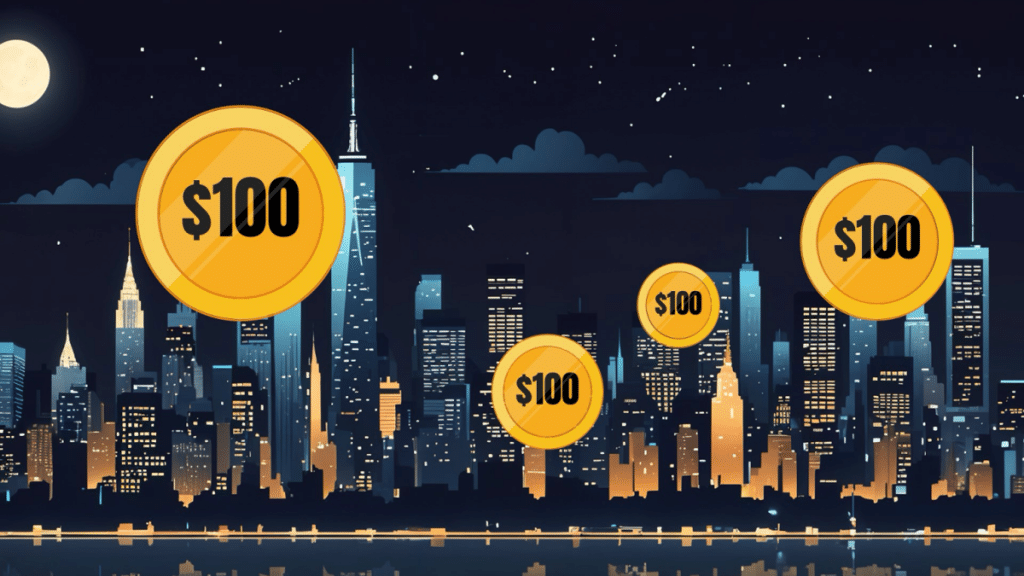The concept of tokenized real estate is one of the main drivers behind the real-world asset crypto narrative, which is expected to grow into a multi-trillion dollar market in the coming years. It’s a broad sector of the blockchain industry that involves bringing real-world assets on-chain, making them more accessible, and NYREF has taken full advantage of this new trend.
In real estate, RWA refers to the digitization of property ownership into blockchain-based tokens. These tokens can be seamlessly bought, sold, or traded, opening the door for a broader range of investors to access and participate in the market.
Demand for tokenized real estate is expected to grow as traditional real estate becomes increasingly expensive and hard to access. This is particularly true in major cities like New York, where property prices have skyrocketed in recent years.
NYREF is leading the way in tokenized real estate with its venture in New York City. They have successfully tokenized a property, making it available for fractional ownership through their innovative platform.
This article examines how NYREF is revolutionizing NYC real estate by leveraging tokenization to make property investment more accessible. We’ll take a closer look at the details of the tokenized property, the potential returns it offers to investors, and the broader implications this innovation holds for the future of real estate investing.
Accessibility: The Tokenized Real Estate Mantra
Accessibility is one of the most used words when criticism of the current real estate market emerges. Due to the surge in property prices in the most valuable markets in the world, such as New York City, many people can never hope to become real estate owners.
According to Realtor.com, the median listing home price in New York, NY, was $839k in late 2024. This high cost of entry creates a significant barrier for those with limited capital, preventing them from participating in the potential gains and benefits of real estate investment.
As the data suggests, for the average investor, the current model simply isn’t working. High property prices, coupled with additional costs like legal fees, stamp duty, and mortgage payments, make real estate investment seem out of reach for many. The complexities of the buying and selling process can also be daunting, further discouraging potential investors.
Real estate tokenization is seemingly the only viable solution to this crisis. It can arguably reduce entry barriers and make real estate investing an attainable goal for the average person.

NYREF Unlocks Accessibility with its Tokenized NYC Property
NYREF has taken a giant step in making tokenized real estate investing a reality. The project has tokenized a property in NYC on the Avalanche blockchain, where it has been broken down into 14,400 tradable tokens valued at $1,000 each, with a minimum purchase requirement of $100.
This means the entry barrier has suddenly dropped from over $800,000 to $100, making NYC real estate investment accessible to a much wider range of individuals.
Located at 3187 Grand Concourse, LLC, in the Bronx, this $18 million property is a striking modern multi-family building. Spanning nine stories, it houses 32 thoughtfully designed residential units, each offering spacious layouts, abundant natural light, and seamless access to local transportation and amenities.
Investors now have the chance to earn passive rental income from New York City’s thriving property market. This property offers a 5.52% annual return, with a guaranteed minimum increase of 3% per year. In 2022, rental prices surged by 13.2%, highlighting the potential for significant income growth. Earnings are seamlessly distributed to token holders through automated smart contracts, providing a hassle-free investment experience.
NYC And Beyond: The Long-Term NYREF Vision
According to the NYREF team and community, the NYC property is just the start. Now that they have shown that their new model for real estate works, it is expected to begin expanding over time, possibly changing the way real estate markets function globally. The end goal is to contribute to the creation of a more accessible and fair real estate market that doesn’t isolate massive slices of the population due to high prices and legal complexity.

